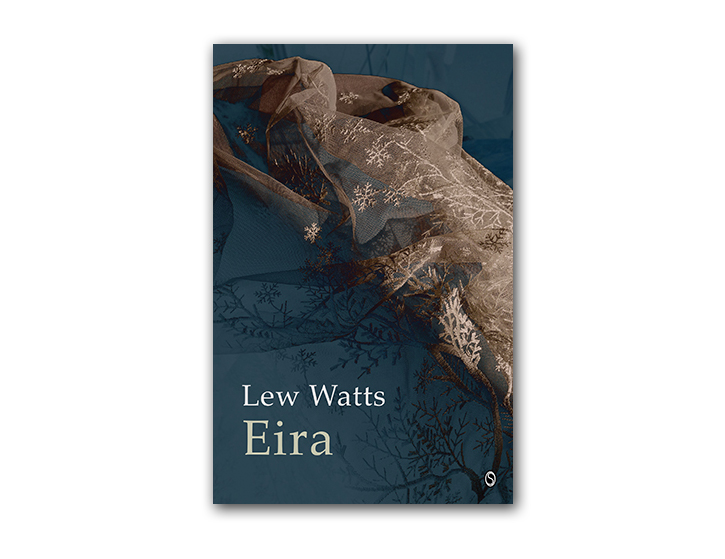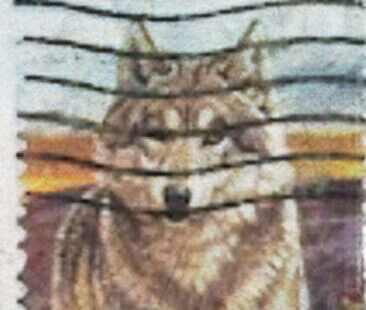
Book Review: Eira
By Lew Watts
Published by Snapshot Press
Ormskirk, Lancashire, Great Britain
2023, Paperback, 108 pages
ISBN: 978-1-903543-56-6
$28 U.S. / £15 / €20
Reviewed by Peter Newton

Eira begins with Lew Watts standing up for his rights. The newly bestowed rights of American citizenship, those of “life, liberty and the pursuit of happiness.” These are uniquely American rights, as stated in the Declaration of Independence. The reader will come to discover just how momentous this ceremony is to Watts as the details of his life are revealed to us. We learn about his growth as a human being from a boyhood in his native Wales, a harsh upbringing full of challenges—abuse, trauma, tragedy—that weren’t exactly conducive to the pursuit of happiness.
And yet pursue it he does. This is what Eira is about. A coming-of-age story. A story of redemption and a search for forgiveness. And so much more.
Among the book’s 38 haibun, Watts splices multiple haiku that serve as the connective tissue for the whole body of Eira. They resonate nicely with the adjacent haibun, and the structure drives the reader to turn each page as one might in a suspense novel. (No small feat in any book—let alone a book of haibun—to get the reader to ask: What happens next?) But what elevates Eira is Watts’ ability to place the reader in the room right before him, as if we might be chatting over a cup of tea or a pint down at the corner pub. There’s music in the background and a lot of chatter from nearby patrons, each doing their best to get through another day. Life is hard. And Watts tells his story with a poet’s careful eye and the heart of a survivor.
Matriarchs
The closer one came to my mother’s side of the family, the more refined the insults. My father’s sisters had no problem with the simple word “ugly,” though they could embellish at times – “looks like she’s been hit by a bus,” was a favorite. Of course, my maternal grandmother usually hid behind her welsh, whispering “hyll” at facial hair and bald babies, or “ach y fi” at cold sores and bad feet. And so it was a relief to hear her simply call me “plain” one day. As for Mam, she had the same word for every girlfriend I brought home. “unfortunate,” she’d say, followed by a sniff.
Christmas afternoon chasing down smoke rings from the hole in gran's throat
Watts makes us feel what he feels through a variety of perspectives and creative choices that engage the reader throughout Eira. One haibun, “Holeh, Holeh, Holeh,” contains the colloquial Welsh accent written out phonetically, for example: “If I wuz t’ taak like I used to taak, irrud sound summin like diss.” In another, “David,” Watts addresses the famous sculpture by Michelangelo—the perfect man, against whom he compares both his father and himself. (“Forgive me, but I’m not like you,” Watts confides to the inanimate marble.)
Consistently, Watts’s prose pulls us in while the haiku compress a lifetime of emotion with powerful, understated impact. Especially poignant are the pieces about his mother, who died prematurely from mysterious circumstances. (Was it an accidental drowning? A suicide? Was there some mental illness that fueled his mother’s embittered ridicule of her son?) No matter, Watts seems to say. We are what we are. Or, rather, we are what we make of ourselves.
wind chimes the notes Mam hummed on her good days
And the portraits of his father are rendered without sentimentality.
How dark was my valley
The faces are black and downcast, but to me he’s unmistakable—the bag slung over the left shoulder, the slight drag of the right foot. I wave as he walks through the gates, and he smiles before lighting up. He ruffles my hair, and the scent of a shift-full of sweat lifts from his clothes. “They found your mother yet?” he asks.
choir night Dad clears his voice down the sink
Watts depicts a life of challenges—physical abuse, divorce, death, grief, episodes sometimes rendered with a dark humor.
class reunion— her lips the same color as his scar
selling Mom's house ... the room where she cooked now a gut job
already written my ex-wife's obitchuary
He also depicts a life that changes, as all ours do. His is a life in which he chooses to cross the street, metaphorically speaking, to walk on the sunny side for a change. A decisive act of free will, much like how the book begins. He renounces one citizenship for another: Watts is remaking himself into a more “perfect” man, and he presents that journey with a clear-eyed, level-headed version of events. Brutally honest at every turn.
Emergence
Sometimes, it can happen in a moment – on an abandoned path, in a chanced glance, through a tingle in the fingers. Sometimes, we need the seed of an idea to change a life, and a little magic for it to germinate.
Cambrian shale . . . on a mudcracked slab fossil raindrops
I recommend Eira for the hope it instills. And, of course, the skill with which it is written. The order in which Watts conveys information to the reader is incredibly well done. I suspect John Barlow, excellent editor that he is, had a fair amount to do with this. Either way, the finished product reads like a novel packed with heart-wrenching tales. Finally, the variety of creative choices made in each haibun is what propels the reader forward to the poignant ending. The title of the book was a word I had never seen before, and its meaning, as we discover, is disarmingly human and beautiful. As this book is.
About the Reviewer

Peter Newton is the author of several books in the Japanese short form traditions of haiku, haibun, and tan renga. His newest book of haiku is Glide Path (Red Moon Press, 2022), and his most recent collection of haibun is Part-Time Gods (Snapshot Press, 2022).

Well done to Lew on his shortlisting in the Touchstone award for distinguished books!